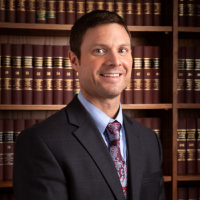Coldwater DUI-DWI Lawyer, Michigan
Sponsored Law Firm
-
 x
x

Click For More Info:
-
Law Office of Mark S. Guralnick
55 Madison Avenue 4th Floor Morristown, NJ 07960» view mapCriminal Defense Law Dedicated. Fearless. Successful.
Mark S. Guralnick and his legal team have helped clients throughout the USA and across the world by applying unparalleled dedication and hard work to each case.
800-399-8371
Wesley Johnson Todd
✓ VERIFIEDDUI-DWI, Criminal, Bankruptcy, Divorce & Family Law
Wesley Todd originally joined the firm as an intern in 2008. He has been a shareholder of the firm since 2020. He was born in Kalamazoo, Michigan and ... (more)
FREE CONSULTATION
CONTACT Mark Guralnick Morristown, NJ
Mark Guralnick Morristown, NJ AboutLaw Office of Mark S. Guralnick
AboutLaw Office of Mark S. Guralnick Practice AreasExpertise
Practice AreasExpertise

